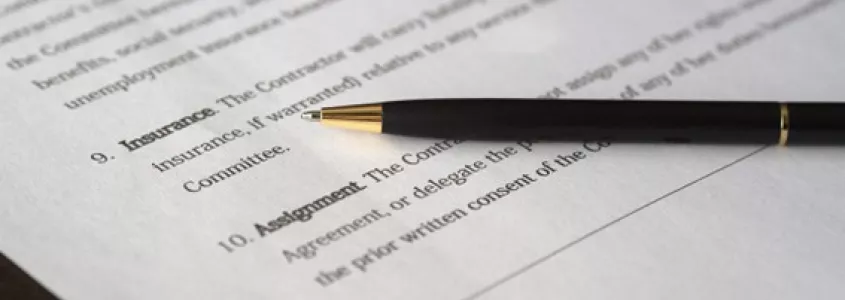Consequences of insolvency proceedings
- 1. A declaration of insolvency proceedings shall be made in the event of the insolvency of the common debtor.
- 2. A debtor is in a state of insolvency if he is unable to meet his due obligations on a regular basis.
- 3. If the application for a declaration of insolvency is made by the debtor, he must provide evidence of his indebtedness and of his state of insolvency, which may be actual or imminent. A debtor is in a state of imminent insolvency if he foresees that he will not be able to meet his obligations regularly and on time..
- 4. If the application for a declaration of bankruptcy is made by a creditor, it must be based on a title for which execution or seizure has been ordered without the seizure resulting in sufficient free assets for payment, or on the existence of any of the following facts:
- The general suspension in the current payment of the debtor's obligations.
- The existence of liens due to pending executions that affect the debtor's assets in general.
- The hasty or ruinous liquidation of the debtor's assets by the debtor.
- The generalised non-fulfilment of any of the following types of obligations: payment of tax obligations due during the three months prior to the application for insolvency proceedings; payment of Social Security contributions and other jointly collected items during the same period; payment of salaries and indemnities and other remuneration arising from employment relationships corresponding to the last three monthly payments.

News on insolvency law

Unfair competition, also known as unlawful competition, is one of the most complex issues in the field of commercial law. Because it can occur in an infinite...

Business accelerators are organisations or programmes that provide support and resources to startups and entrepreneurs in the early stages of their company's...

Illiquidity refers to the inability of an entity or individual to convert assets into cash quickly without incurring significant losses. In other words, it is...

The mandate contract is an agreement in which a person, called the principal, entrusts another person, called the agent, with the performance of certain actions...

Due diligence is a process of thorough investigation and analysis undertaken to evaluate a company, an individual or an investment opportunity. The objective of...

A surety is a guarantee offered to ensure the fulfilment of a contractual or legal obligation. It is a contract whereby a third party, called a surety or...

A company's articles of association are a legal document that sets out the rules and regulations governing the organisation and operation of a company. These...

An offshore company is a legal entity created in a foreign country for commercial, financial or tax purposes. The term "offshore" refers to the fact that the...

A pledgee is a person or entity that has a security interest in movable or immovable property that has been pledged as security for a debt. In other words, it...

The venture capital is a form of financing companies in early-stage or growth companies involving venture capital investment in emerging companies and startups...

A corporate restructuring process is a strategy used to improve the efficiency and effectiveness of a company. In general, restructuring involves significant...

A capital reduction is a financial operation that consists of reducing the nominal value of a company's share capital. This can be done for different reasons, e...